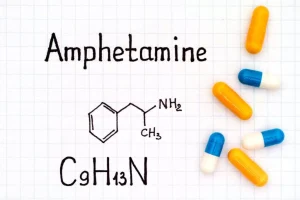
Repairing previous harm also assists in helping you rebuild important relationships which may have been impacted by addiction. In Step 9, participants acknowledge the negative impact their addiction had on others and commit to direct amends where possible. True amends go beyond apologies; they involve sustained change. These actions demonstrate a new way of living and help develop accountability, paving the way for Step 10, where amends are made immediately upon realizing harm.
Talking to Your Family About Your Addiction
Through service, these negative emotions are converted into a commitment to helping others, thus elevating one’s sense of self-worth. As recovery progresses, an increase in self-worth accompanies the living amends reduction in sensations of worthlessness and indulgence in self-pity. You can watch my TEDx Talk about Relapse Prevention and using the stories from our pasts to help others.
Global Presence of AA
The Twelve-step program first step is to know that your questions and feelings are normal. Using the worksheet becomes a form of spiritual preparation when it is complete. If you need a good place to start, consider doing a Bible study or starting a Bible reading plan.
Anxiety and Addiction

It’s important to be mentally prepared for different types of responses and to have a plan in place to manage these responses, which can be processed with a sponsor or support group. An effective acknowledgment is free from excuses, focusing solely on the harm caused rather than attempting to justify the behavior that led to it. Acknowledging the damage caused, though challenging, is a critical step for our recovery.

- Some complete the steps quickly, while others take longer based on their spiritual growth and willingness.
- This stage is where real healing happens—not just for us, but for those we’ve hurt along the way.
- She is a current member of the Golden Key International Honor Society and the Delta Epsilon Iota Honor Society.
It’s not unusual to face disappointing outcomes, including rejection. Some may not be ready to accept amends, leading to potential rejection or disappointment. This can be disheartening, but it’s important to practice patience and persistence, as making amends is often a gradual process. Willingness to make amends is crucial for carrying out Step 9 effectively and initiating the reconciliation process.
- The steps work best when followed thoroughly and honestly, as they are laid out in the Big Book.
- You don’t always have to send it, but an exercise like this can be very healing.
- Again, planning for negative outcomes when making amends and discussing these plans with a sponsor or support group can provide essential emotional preparation.
- Step 9 is where we take the action we’ve been preparing for in Steps 6 through 8.
- The process of making direct or other forms of amends is an ongoing path towards self-improvement which necessitates both diligence and a dedicated pursuit of personal growth.
Living amends touches deep parts of our lives and souls if we allow them. A few months back, she was traveling for an extended period of time. Well, the time came to continue my living amends to her and redo her entire master suite, including her bathroom. She came home to what she described as “a completely different house”. My living amends to my mother is to be fully present in my life so I can be fully present in hers.
Step Series
Ms. Honer, who has been in long-term recovery for over 40 years, has worked in the treatment field for over 33 years. She holds certifications in addiction and co-occurring disorder counseling and a bachelor’s degree in addiction studies, having graduated summa cum laude. Before Step 9, one completes the Step 8 inventory, listing people they’ve harmed and developing a willingness to make amends. Some people on this list may be harder to approach, so readiness is key.

You might question who you should make amends with versus those who would be harmed if you did this. For these reasons, we do not initiate the process of amends without significant input from our sponsors. It is their job to make sure we make amends in the right way and for the right reasons. This is a very sensitive process, and we need help to make sure we don’t hurt ourselves and others. As recovering addicts, we fear the loss of control we experienced in our darkest days. This step is accompanied by the terrible realization that we have no control over the response of the people we have harmed.
By acknowledging past wrongs and demonstrating a commitment to change, we can restore relationships and rebuild trust. This process fosters healing and resolution, providing clarity and relief from guilt for both parties involved. Living amends demonstrate personal growth and commitment to change in recovery.
What Type of Drug is Heroin?
The second category should include those people to whom the person will make partial amends, because full restitution would cause more harm than good. But when I worked this step with my sponsor I realized that I had several issues that I didn’t even realize I needed to make amends about. The first being the alcoholics in my life, I had a part in their disease and didn’t know what I had done to them. I always thought that I had been making direct amends whenever I had injured others.